- Recherche d'emploi
- Liege Metropolitan Area, Belgium
- Senior System Engineer
Cette offre d'emploi n'est pas disponible dans votre pays.

Senior System Engineer
SparagusLiege Metropolitan Area, BelgiumIl y a plus de 30 jours
Description de posteTest and assess performances of Algorithms using analytical methods and Monte-Carlo simulations. Perform Algorithms validation and verification (V&V) for any updates and / or new designs. Support integration of Algorithms into hardware using code generation and Hardware-in-the-loop test rig. Improve C code generated and support embedded team to integrate algorithms into devices Participate to trials and process flight test data. Maintain digital twin for our current and in-development products. Model physical behaviors of new concepts and perform simulations to orient development and answer key Interact with Bid & Project teams to prepare technical offers and answer customer requests. Interact with Operations and Quality teams to optimize calibration procedures and treat acceptance test Discuss with the partners, integrators and customers during missions in Belgium or abroad You graduated with a Master’s Degree in Engineering, Aeronautics, Mathematics, Physics or Electronics 3-5 years of relevant experience working in engineering department You are competent in mathematics and statistics, you are not afraid of complexity and you can efficiently work You have an analytical mind and are recognized for your thoroughness You know Matlab and Simulink You are a good communicator, you can show pedagogy to explain complex problems with simple words. You understand the challenges of embedding real time algorithms in micro-controllers. You are self-motivated and like to take initiatives. You like following the latest trends in innovation You are able to work with Agile culture You have appetence for high-tech sensor (optical, magne, magnetic) is a plus You are able to build your own tools in C / C++ / Pyhton script is a plus An experience in aeronautical, spatial, defense or automotive industry, as well as a knowledge of the standards DO-178, ARP4754 or ISO26262, is a plus.
RESPONSIBILITY
- Develop and improve both new and existing Algorithms and Control Laws design for Guidance, Navigation,
Flight Controls and Aiming System.
technical decisions.
deviations.
PROFILE
with large volume of data.
Créer une alerte emploi pour cette recherche
System Engineer • Liege Metropolitan Area, Belgium
Emplois reliés

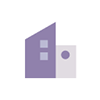


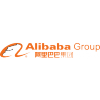





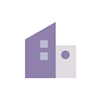
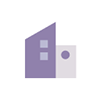
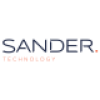


- Offre sponsorisée

System Engineer - FR / EN - ALTEN Belgium
ALTENLiege Metropolitan Area, Belgium Dans le cadre de notre croissance continue, nous recherchons un(e) System Engineer pour rejoindre nos équipes et intervenir sur des projets clients situés à Liège.
En tant que System Engineer, vos p...Voir plusDernière mise à jour : il y a plus de 30 jours
- Offre sponsorisée

Senior Embedded Engineer (EN)
ALTEN BelgiumLiege Metropolitan Area, Belgium You will work closely with the software architect to implement features according to the defined architecture.As part of your mission, you will : .
Develop embedded software in C / C++ for microcontroll...Voir plusDernière mise à jour : il y a 4 jours
- Offre sponsorisée

Comptable senior
ArbalettLiege Metropolitan Area, Belgium Le poste offre un cadre responsabilisant, où l’autonomie, la fiabilité et le sens de l’initiative sont pleinement valorisés.
Les langues sont des éléments indispensable à savoir.C2), l'anglais (B2 m...Voir plusDernière mise à jour : il y a 8 jours
- Offre sponsorisée

Data Engineer
ExtiaLiege Metropolitan Area, Belgium Vous souhaitez rejoindre une entreprise qui place l’humain au cœur de ses préoccupations ? On vous attend chez Extia !.Société de conseil spécialisée dans les métiers de l’IT et du digital, Extia p...Voir plusDernière mise à jour : il y a 14 jours

System engineer Junior
JobmatchLiège, Belgium Gérer différentes infrastructures existantes : .Améliorations dans l'infrastructure afin de la renforcer.Supervision au quotidien des infrastructures (état, gestion des incidents / pannes).Réaliser ...Voir plusDernière mise à jour : il y a 1 jour

Cainiao-Senior IT Network Engineer-Liege, Belgium
阿里巴巴集团列日 Work experience requirement : 5+ Years.Analyzing existing hardware, software, and networking systems.Responsible for the network security of CAINIAO in Europe, deal with network attacks, etc.Provide...Voir plusDernière mise à jour : il y a plus de 30 jours
- Offre sponsorisée
- Nouvelle offre

Senior Freelance Cyber Security Engineer
GAMBIT Financial SolutionsLiege Metropolitan Area, Belgium Nous recherchons un consultant senior en cybersécurité pour rejoindre notre équipe dynamique.Le candidat idéal aura une expérience approfondie dans la mise en œuvre de projets en cybersécurité et s...Voir plusDernière mise à jour : il y a 14 heures
- Offre sponsorisée

Test Engineer
Capgemini EngineeringLiege Metropolitan Area, Belgium At Capgemini Engineering, the world leader in engineering services, we bring together a global team of engineers, scientists, and architects to help the world’s most innovative companies unleash th...Voir plusDernière mise à jour : il y a 6 jours
- Offre sponsorisée

Proposal Engineer
Profile GroupLiège, Not Specified, Belgium Un rôle à la croisée des chemins entre ingénierie, relation entre collègues et coordination internationale, ça vous parle ?.
Si oui, rejoignez Rolls-Royce Solutions Liège en tant que Proposal Engine...Voir plusDernière mise à jour : il y a 27 jours
- Offre sponsorisée

Field-Programmable Gate Arrays Engineer
Vivid ResourcingLiege Metropolitan Area, Belgium FPGA Engineer – Image Processing.Must have the right to work in the EU.Join a cutting-edge image processing company based in the heart of Liège, specializing in advanced visual computing technologi...Voir plusDernière mise à jour : il y a 12 jours

System engineer for Hydrogen projects, Liege (Belgium) F / H
B-HIVELIEGE, Belgique B-HIVE est une entreprise spécialisée dans le domaine de l'ingénierie.Nous sommes une équipe passionnée et dynamique qui travaille ensemble pour offrir des solutions innovantes et efficaces à nos c...Voir plusDernière mise à jour : il y a plus de 30 jours
- Offre sponsorisée
- Nouvelle offre

Electrical Engineer
CatalayLiege Metropolitan Area, Belgium As an Electrical Engineer, you will be responsible for the design, coordination, and technical follow-up of electrical aspects across industrial projects, from engineering studies to on-site execut...Voir plusDernière mise à jour : il y a 14 heures
- Offre sponsorisée

SANDER. - Senior Network Engineer
WhatJobsLuik, Provincie Luik, Belgique Securing Global Networks with cutting-edge cybersecurity tech.Ready to lead internationally and make an impact in the big leagues ? If you're an experienced Network Engineer feeling stuck, it'...Voir plusDernière mise à jour : il y a 7 jours
- Offre sponsorisée

SANDER. - Senior Network Engineer
SANDER.Liège, Belgium Securing Global Networks with cutting-edge cybersecurity tech.Ready to lead internationally and make an impact in the big leagues ? If you're an experienced Network Engineer feeling stuck, it...Voir plusDernière mise à jour : il y a 23 jours
- Offre sponsorisée

Test Engineer
SGILiege Metropolitan Area, Belgium Test Engineer – Defense Sector.Our client are seeking a Test Engineer to support the design and validation of advanced defense technologies.
The successful candidate will lead the planning, executio...Voir plusDernière mise à jour : il y a 20 jours
- Offre sponsorisée

Test Engineer
Jefferson WellsLiège, Not Specified, Belgium As a Test Engineer, you won't just run tests - you'll be at the heart of innovation.Your mission is to plan, execute, and analyze experimental tests that ensure our products meet the highest standa...Voir plusDernière mise à jour : il y a 19 jours